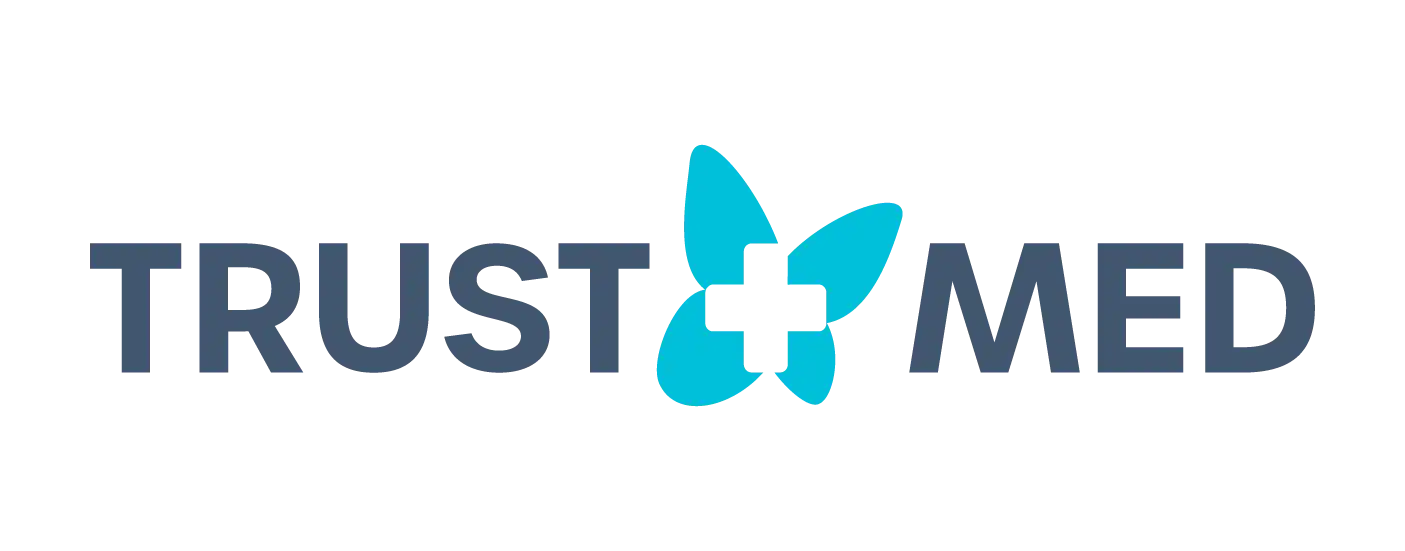TrustMed Clinic : Rosacea Prevention 101: Simple Steps to Keep Flare-Ups at Bay

Rosacea is a common skin condition that causes redness across the nose and cheeks. According to dermatologists from the American Academy of Dermatology, multiple factors — including sunlight, stress, and various foods and beverages — can worsen rosacea symptoms. Alongside seeing a dermatologist for proper diagnosis and treatment, patients can manage their condition and prevent rosacea from worsening by identifying and avoiding their triggers.
Essentials
Here are some essential tips, based on common triggers, to help prevent rosacea flare-ups:
Protect Your Skin from the Sun
Sun exposure is one of the most common causes of rosacea flare-ups. Even people with dark skin tones can experience flare-ups after being outdoors in the sun. To protect your skin, seek shade and wear protective clothing, including a wide-brimmed hat and sunglasses with UV protection, whenever possible. Additionally, apply a broad-spectrum sunscreen with an SPF of 30 or higher to all exposed skin daily. Choose a sunscreen that is fragrance-free and contains active ingredients like zinc oxide and titanium dioxide, as they are less likely to irritate sensitive skin.
Minimize Stress
If stress causes your rosacea to flare, find an activity that helps relieve your stress and do it regularly. Common outlets for stress include exercise, meditation, tai chi, or joining a rosacea support group. Stress management breathing techniques can also help in stressful moments.
Avoid Overheating
Take warm baths and showers instead of hot ones, and sit far enough away from fireplaces, heaters, and other heat sources to avoid direct warmth. If you’re working out, keep supplies like a cold water bottle or a towel dipped in cold water to drape around your neck to help you cool down. Dressing in layers allows you to remove clothing if you get too warm.
Simplify Your Skincare Routine
Skincare plays an important role in rosacea prevention, as many skincare products are too harsh for people with rosacea. Look for mild, gentle formulas made for sensitive skin. Avoid products that contain menthol, camphor, sodium lauryl sulfate, and alcohol, as these can trigger flare-ups. Products containing retinoids may also irritate your skin and may need to be avoided or used less frequently. Be gentle with your skin, and avoid rubbing, scrubbing, or massaging your face.
Opt for Mild Foods
Spicy foods often trigger rosacea symptoms, so opt for milder versions of your favorite dishes. If your rosacea still flares, it’s best to avoid spicy foods altogether.
Choose Cold Beverages
Studies show that the heat from hot beverages can cause some people’s rosacea to flare. Try iced coffee or tea instead, or let your beverage cool first before drinking it.
Limit Alcohol Intake
When it comes to flare-ups from alcohol, red wine may be the biggest culprit. If you choose to drink, consider beverages other than red wine, and limit your intake to one or two drinks with a cold glass of water in between.
Protect Your Face from Wind and Cold
Wearing a scarf is a great option for protecting your skin against the elements. Look for scarves made of silk or acrylic, and avoid wool and other rough-feeling fabrics, as these can trigger a flare-up.
Common Rosacea Triggers
Rosacea can affect anyone but is most common in women with fair skin over 30 years of age. It often runs in families. Rosacea symptoms occur due to an increase in blood flow to the skin’s surface, triggered by factors such as:
- Extreme temperatures
- Wind or sun
- Hot beverages, caffeine, or alcohol
- Spicy food
- Emotional stress
- Intense exercise
- Cosmetics
- Medications that dilate blood vessels
Preventing Rosacea Flare-Ups
Managing rosacea symptoms involves a combination of strategies. Dermatologists can help you determine which combination of treatments is best for you, which may include:
Avoiding Triggers
The easiest way to prevent rosacea flare-ups is by avoiding known triggers. Keeping a diary of what you eat and drink, activities, and locations alongside your rosacea symptoms can help you identify and avoid specific triggers.
Skincare
Proper skincare is crucial for rosacea-prone skin. Use gentle skincare products, cleansers, and cosmetics to help repair and moisturize your skin while easing rosacea symptoms. Protect your skin from sun exposure with a broad-spectrum sunscreen, and shield it from wind and extreme temperatures.
Prescription Medications
In addition to avoiding triggers and making the right skincare choices, your dermatologist might recommend prescription medications to control specific rosacea issues. These therapies can address a wide range of symptoms, including acne-like lesions, inflammation, and redness.
Laser Therapy
Laser treatments can effectively prevent rosacea flare-ups. These treatments minimize the appearance of redness, spider veins, and dilated capillaries by delivering pulses of therapeutic light into unwanted blood vessels. They also activate collagen production, reducing flushing and skin discoloration.






